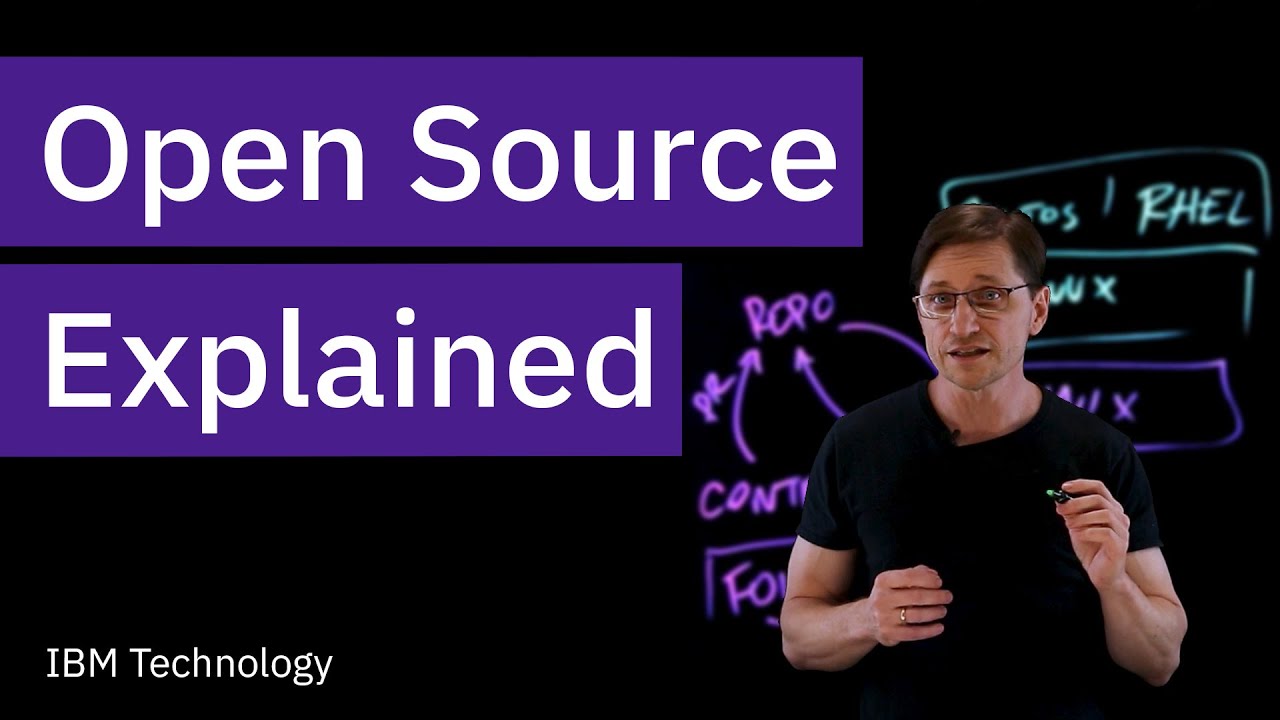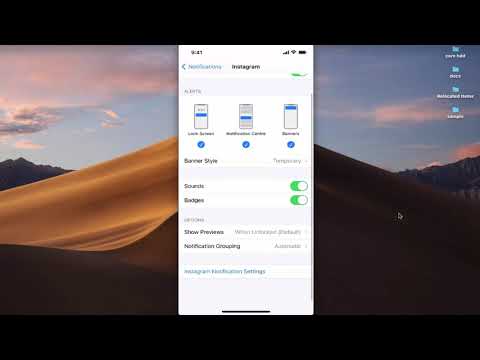In today’s digital age, the need for convenient and secure data storage solutions has become more crucial than ever. Cloud storage services have emerged as a popular option, enabling users to save, access, and share their data effortlessly across multiple devices. However, with numerous choices available, it can be daunting to navigate through the clutter and select the most reliable cloud storage app that suits your needs. In this article, we will explore the top free cloud storage apps that guarantee the utmost security for your valuable data, taking into account their features, user-friendliness, and encryption capabilities.
When it comes to storing sensitive information, security should always be a top priority. Fortunately, several free cloud storage apps offer robust security features to safeguard your data from unauthorized access. Our selection includes apps that use end-to-end encryption, ensuring that only you and those you authorize can view and modify your files. Moreover, these apps employ advanced security measures such as two-factor authentication, which adds an extra layer of protection by requiring a second verification step before granting access. By choosing one of these reliable cloud storage apps, you can enjoy the convenience of accessing your data from anywhere while maintaining full control over its privacy and security.
1. Understanding the concept of open-source software
2. Key benefits and advantages of open-source software
3. Common misconceptions and myths debunked
4. Exploring popular open-source projects and their impact
5. Contributing to the open source community: How to get started
1. Understanding the concept of open-source software
1. Understanding the Concept of Open Source Software
Open-source software has gained immense popularity in recent years due to its numerous advantages and wide range of applications. In this section, we will explore the concept of open-source software, its benefits, and how it relates to cloud storage apps.
Open source software refers to computer programs whose source code is made available to the public under a license that allows users to view, modify, and distribute the code freely. Unlike proprietary software, where the source code is kept secret and controlled by a single entity, open-source software encourages collaboration, transparency, and community-driven development.
One of the key benefits of open-source software is the ability for users to customize and modify the code to suit their specific needs. This flexibility allows individuals and organizations to tailor the software to their unique requirements, leading to greater efficiency and productivity. For example, in the context of cloud storage apps, open-source software enables developers to create customized solutions that integrate seamlessly with existing systems or incorporate specialized security features.
Moreover, open-source software promotes innovation and fosters a collaborative environment. Developers from around the world can contribute to the improvement of particular software, helping to identify bugs, enhance security, and add new features. This collaborative model not only accelerates the development process but also ensures that the software remains up-to-date and meets the evolving needs of the user community.
Another significant advantage of open-source software is its cost-effectiveness. Since the source code is freely available, users are not required to pay licensing fees or purchase expensive software. This makes open-source software particularly attractive for small businesses, startups, and individuals with limited budgets. In the domain of cloud storage apps, open-source solutions offer an affordable alternative to proprietary options, enabling users to benefit from secure data storage without incurring hefty expenses.
Furthermore, open-source software promotes security and transparency. With the source code being publicly accessible, potential vulnerabilities can be identified and fixed quickly by the developer community. This transparent approach allows users to have greater confidence in the integrity of the software and reduces the risk of hidden backdoors or malicious code. In the context of cloud storage apps, where data security is of paramount importance, open-source software helps in building trust and ensuring the protection of sensitive information.
It is important to note that while open-source software offers numerous advantages, it also comes with certain challenges. For instance, the decentralized nature of open-source development can sometimes lead to fragmentation and incompatibility between different versions of the same software. Additionally, the availability of source code may also expose vulnerabilities that can be exploited by malicious actors. However, these challenges are outweighed by the benefits and can be actively managed through proper community engagement, robust testing, and regular updates.
In summary, open-source software plays a vital role in the development of cloud storage apps, providing users with customizable, cost-effective, innovative, and secure solutions. Its collaborative nature promotes transparency, fosters innovation, and empowers users to shape the software according to their specific needs. By embracing open-source software, individuals and organizations can leverage its advantages to securely store and manage their data in the cloud.
2. Key benefits and advantages of open-source software
2. Key Benefits and Advantages of Open Source Software
Open-source software (OSS) has gained significant popularity in recent years due to its numerous benefits and advantages. Unlike proprietary software, which is developed and distributed solely by a single company, open-source software is developed collaboratively by a community of developers. This section will explore some of the key benefits and advantages of open-source software.
1. Cost-Effectiveness: One of the primary advantages of open-source software is its cost-effectiveness. Open-source software is typically available for free, allowing users to deploy the software without incurring any upfront costs. Furthermore, using open-source software eliminates the need for expensive licensing fees and reduces overall software expenses for businesses and individuals.
2. Transparency: Another significant advantage of open-source software is its transparency. Since the source code of open-source software is accessible to everyone, users can view, modify, and distribute it. This transparency ensures that the software is not hiding any malicious code or vulnerabilities. It also allows users to understand how the software works in detail, providing them with an opportunity to improve and strengthen its performance.
3. Customizability: Open source software provides users with the flexibility to customize the software according to their specific needs. As the source code is openly available, users can modify and enhance the software’s functionality to suit their unique requirements. This customization capability allows businesses to tailor the software to align with their particular workflows and processes, resulting in increased efficiency and productivity.
4. Collaborative Development: Open-source software development thrives on collaboration and community participation. Thousands of developers worldwide contribute to open-source projects, each bringing their unique expertise and skills. This collaborative approach ensures that the software is constantly evolving, with regular updates and improvements. Users benefit from the collective knowledge and efforts of the community, obtaining a more feature-rich and reliable software product.
5. Security: Despite common misconceptions, open-source software is often considered more secure than proprietary software. Since the source code is visible to the community, any security vulnerabilities or weaknesses can be identified and fixed rapidly. The extensive peer review process helps improve the software’s security posture, making it less susceptible to cyber threats. Additionally, the collaborative nature of open-source development means that security issues are shared, discussed, and addressed promptly, resulting in a secure and robust software product.
6. Vendor Neutrality: Open source software eliminates vendor lock-in, giving users the freedom to switch between different vendors or service providers without significant hurdles. With proprietary software, users are often tied to a specific vendor and face challenges when migrating to alternative solutions. Open-source solutions provide users with the assurance of long-term availability and the option to choose the best provider that meets their requirements.
In conclusion, open-source software offers several key benefits and advantages, including cost-effectiveness, transparency, customizability, collaborative development, security, and vendor neutrality. These characteristics have made open-source software increasingly popular and widely adopted across various industries. By embracing open-source solutions, businesses and individuals can leverage the power of community-driven development, enhance security, and reduce software costs while gaining the flexibility to tailor the software to their specific needs.
3. Common misconceptions and myths debunked
3. Common misconceptions and myths debunked
Cloud storage has become an integral part of our lives, allowing us to securely store our files and access them from anywhere. However, there are several common misconceptions and myths surrounding cloud storage that need to be debunked. In this section, we will explore and debunk some of these misconceptions, providing you with accurate information to help you make informed decisions about your cloud storage needs.
1. “Cloud storage is not secure.”
One of the most prevalent myths about cloud storage is that it is not secure. However, it is essential to understand that reputable cloud storage providers prioritize the security of their users’ data. They employ advanced encryption techniques to protect your files from unauthorized access. Additionally, many providers offer advanced security features, such as two-factor authentication and end-to-end encryption. While no storage solution is completely immune to security risks, cloud storage is generally considered to be highly secure.
2. “Cloud storage is expensive.”
Another misconception surrounding cloud storage is that it is expensive. While some premium plans may come with a price tag, many cloud storage providers offer free plans with a generous amount of storage space. These free plans are suitable for most users’ needs, allowing them to store and access their files without incurring any costs. Furthermore, if you require additional storage space, the cost of upgrading to a paid plan is often relatively affordable, especially considering the convenience and features provided by cloud storage.
3. “Cloud storage is only for tech-savvy individuals.”
Many people believe that cloud storage is complicated and can only be used by those with advanced technical knowledge. However, this is far from the truth. Cloud storage providers design their apps and platforms to be user-friendly, with intuitive interfaces and simple setup processes. You do not need to be a tech expert to utilize cloud storage effectively. Most cloud storage apps offer easy drag-and-drop functionality, making it a breeze to upload and organize your files. Additionally, many providers offer comprehensive documentation and customer support to assist users with any issues they may encounter.
4. “Cloud storage is not reliable.”
Some individuals may have concerns about the reliability of cloud storage, fearing that they may lose access to their files if the service experiences a technical issue or outage. While no service is entirely immune to glitches, reputable cloud storage providers have robust infrastructure and redundancy measures in place to ensure data integrity and availability. They often maintain multiple data centers located in different geographical regions, ensuring that even if one center has an issue, your files are still accessible from other locations. Therefore, the likelihood of experiencing complete data loss or prolonged downtime is minimal.
5. “Cloud storage is only for businesses.”
While many businesses do rely on cloud storage for their data storage needs, cloud storage is equally beneficial for individual users. Whether you want to back up your photos, store important documents, or share files with friends and family, cloud storage is a convenient and secure solution for all. It provides peace of mind by safeguarding your valuable data while also allowing you to access and share files effortlessly across various devices and platforms.
In conclusion, it is crucial to separate fact from fiction when it comes to cloud storage. Debunking these common misconceptions highlights the benefits and reliability of cloud storage solutions. With robust security measures, affordability, user-friendliness, and reliability, cloud storage is an excellent choice for individuals and businesses alike, providing a safe and convenient way to store and access your files.
4. Exploring popular open-source projects and their impact
4. Exploring Popular Open Source Projects and Their Impact
Open-source projects have revolutionized the way we use technology and access cloud storage. With the rise of cloud computing, open-source projects play a crucial role in ensuring the security and accessibility of users’ data. In this section, we will explore some popular open-source projects and delve into their impact on the world of cloud storage.
1. OwnCloud:
OwnCloud is a widely acclaimed open-source cloud storage solution that allows you to create your own cloud. Its intuitive interface and robust set of features make it a popular choice for individuals, businesses, and even educational institutions. OwnCloud offers seamless file synchronization across multiple devices, ensuring that your data is always accessible wherever you go. With its open-source nature, OwnCloud also provides you with complete control over your data, allowing you to maintain its security and privacy.
The impact of OwnCloud is profound, as it empowers individuals and organizations to have full command over their data storage. Its flexible architecture and extensive API support enable integration with various third-party services, making it highly adaptable to diverse environments.
2. Nextcloud:
Nextcloud is another powerful open-source cloud storage platform that focuses on privacy and security. Built on the foundations of OwnCloud, Nextcloud offers enhanced features, performance, and user experience. It provides seamless data synchronization, file sharing, and collaboration tools, making it an all-in-one solution for personal and enterprise cloud storage needs.
Nextcloud’s impact is far-reaching, as it enables organizations to maintain control over their data while benefiting from a host of productivity features. Its advanced encryption capabilities and extensive plugin support for two-factor authentication further enhance the security of user data.
3. Seafile:
Seafile is a fast and reliable open-source cloud storage platform that emphasizes data privacy and performance. With its seamless file synchronization, data sharing, and collaboration features, Seafile is a fantastic choice for both personal and enterprise use. Praised for its efficiency and scalability, Seafile supports large data sets and provides an optimized user experience.
The impact of Seafile lies in its ability to provide users with a secure and efficient cloud storage solution. Its deployment flexibility, including both self-hosted and cloud-hosted options, makes it a popular choice for organizations looking for scalable and customizable storage solutions.
4. Syncthing:
Syncthing is a decentralized open-source file synchronization solution designed to provide secure and private cloud storage. With Syncthing, you can sync files directly between devices without relying on third-party servers. It employs the principles of end-to-end encryption, ensuring that only you and the intended recipient can access your data.
The impact of Syncthing is significant, as it offers a decentralized approach to file synchronization, reducing the reliance on cloud storage providers. It provides a secure and private alternative for individuals and businesses seeking ultimate control over their data.
In conclusion, open-source projects have transformed the cloud storage landscape, offering secure, customizable, and privacy-focused solutions. OwnCloud, Nextcloud, Seafile, and Syncthing are just a few examples of the many open-source projects that have made a significant impact in the world of cloud storage. These projects empower users to retain control over their data while benefiting from the convenience and accessibility of cloud storage. With their robust features and commitment to privacy, open-source cloud storage solutions continue to shape the future of data storage and sharing.
5. Contributing to the open source community: How to get started
5. Contributing to the open-source community: How to get started
The open-source community is a vast and dynamic network of developers, programmers, and enthusiasts who collaborate to create innovative and freely available software solutions. Open-source projects offer a unique opportunity for individuals to contribute their skills, knowledge, and creativity while honing their abilities and making a positive impact on the wider tech community. If you are interested in getting involved and contributing to the open-source community, here are some key steps to get you started.
1. Identify your interests and align them with a project:
The first step is to identify your areas of interest within the open-source community. Do you have a particular programming language, framework, or technological domain that you are passionate about? Once you have defined your interests, you can start exploring existing open-source projects that align with your preferences. Websites like GitHub and GitLab offer extensive repositories of open-source projects, making it easier for you to find projects that match your skill set and interests.
2. Study the codebase and documentation.
Once you have chosen a project, it is crucial to study the project’s codebase and documentation thoroughly. Familiarizing yourself with the existing code structure, project architecture, and guidelines will help you understand how the project functions and enable you to contribute effectively. Moreover, most open-source projects have detailed documentation that provides valuable insights into the project’s objectives, features, and development practices. Make sure to read the documentation thoroughly to ensure you have a solid grasp of the project’s context and requirements.
3. Engage with the project community:
Open-source projects thrive on collaboration and community interaction. It is essential to engage with the project community by joining their mailing lists, forums, or chat channels. Introduce yourself, express your interests, and inquire about potential areas where you can contribute. Participating in discussions and asking questions will not only help you gain insights into the project but also build relationships with project maintainers and other contributors.
4. Start with small, manageable tasks:
As a beginner, it is advisable to start with small, manageable tasks known as “beginner-friendly” or “good first issues.” These tasks are specifically designed to help newcomers familiarize themselves with the project’s code and development workflow. You can ask the project maintainers or community members for suggestions or look for these issues in the project’s issue tracker or GitHub repository. By solving these small tasks, you can gradually gain confidence and a deeper understanding of the project.
5. Collaborate and learn from experienced contributors:
Working on an open-source project allows you to collaborate with experienced contributors who possess valuable insights and expertise. Take advantage of this opportunity by seeking guidance and feedback from these individuals. They can provide constructive criticism, valuable code reviews, and mentorship that will accelerate your learning process. By collaborating and learning from others, you not only improve your technical skills but also develop an understanding of effective collaboration within the open-source community.
In conclusion, contributing to the open-source community can be a fulfilling and enriching experience for any developer or programmer. By identifying your interests, studying the codebase, engaging with the project community, starting with small tasks, and collaborating with experienced contributors, you can make your mark in the world of open-source software development. Remember, the open-source community thrives on collaboration and knowledge sharing, so don’t hesitate to get involved and contribute your skills to make a difference.
In conclusion, the world of cloud storage has revolutionized the way we store and access our data. With the myriad of options available, it can be overwhelming to find the best free cloud storage app that suits your needs. However, by considering factors such as security, storage capacity, ease of use, and additional features, you can confidently secure your data with some of the top free cloud storage apps available today. Remember to always prioritize security by utilizing encryption and two-factor authentication to ensure your data remains safe from unauthorized access. Whether you’re a business professional needing to store important documents or a student wanting to back up assignments, these free cloud storage apps provide flexibility, accessibility, and peace of mind. So, take your pick, sign up, and securely store your data in the cloud!




















Are their any storage apps that's unlimited for free without having to pay. I'm looking for an alternative to Google photos since they now have storage limit
Telegram zindabad 😂
Quality content spotted
best cloud storage for 5TB..???
Cool bro🎉
Love how this video starts with 'fed up of 15gb from Google drive' then goes on to recommend 10gb storage ..
To All The Complainer or Should i call Brokies, WHAT THE FCK DO YOU EXPECT FOR FREE? ITS JUST THAT YOU ARE BROKIE!
Mega used to give 50GB for free. I regret not making more accounts.
bro your recommended 5TB storage is just for 90 days.
Song at the beginning of the video?
Keep it up bro
Thanks
I think I downloaded idrive from your last video?
Good video bro
Heart❤ plz